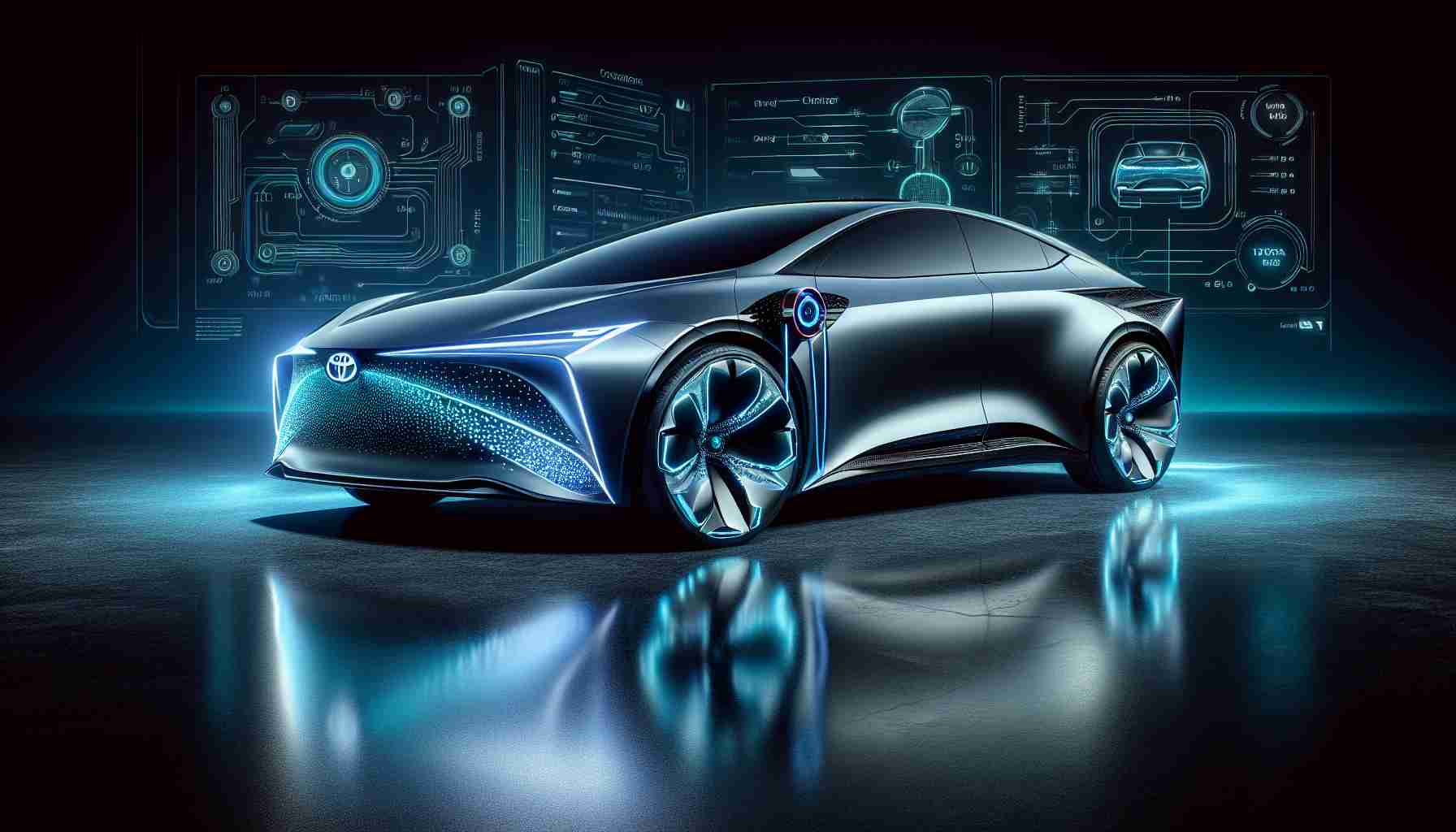- Toyota is establishing a new company in Shanghai to produce Lexus EVs, aiming for a 2027 launch.
- The new facility will have a production capacity of 100,000 vehicles per year and create about 1,000 local jobs.
- A battery plant in the U.S. will add another 5,000 jobs, showcasing Toyota’s commitment to expanding its workforce.
- Despite recent scandals, Toyota reported a 61% profit increase in its third fiscal quarter, prompting an upward revision of profit forecasts.
- The company is aligning its electric vehicle strategy to meet specific customer desires in China and supporting the country’s carbon neutrality goals.
Toyota is revving up its electric vehicle (EV) game with a major announcement that could reshape the industry landscape. In a strategic move to capture the booming Chinese EV market, the automaker is establishing a new company in Jinshan district, southwest Shanghai, where production of groundbreaking Lexus EVs is set to kick off in 2027. With an initial production capacity of 100,000 vehicles per year, this initiative isn’t just about cars; it’s poised to create approximately 1,000 jobs and electrify the local economy.
But that’s just the beginning. Toyota is also unveiling a battery plant in the U.S., which promises to add another 5,000 jobs to the workforce. This bold expansion comes amidst rising tensions in the Asia-Pacific region due to trade disputes but showcases Toyota’s commitment to innovation and sustainability.
Despite recent controversies, including a certification scandal in Japan, Toyota reported a stunning 61% profit surge in its third fiscal quarter, raking in around $14 billion. This financial rebound has led the company to revise its profit forecast upwards, underscoring the effectiveness of its cost reduction strategies and favorable foreign exchange rates.
By advancing local manufacturing in China, Toyota aims to align its electric offerings with the unique desires of Chinese customers, supporting the nation’s ambitious goal of achieving carbon neutrality by 2060. With a focus on becoming a beloved brand within the Chinese market, Toyota is driving towards an electrifying future that could change the automotive industry forever.
Key Takeaway: Toyota is betting big on electric vehicles, launching new facilities that aim to meet surging demand and promote sustainability while creating thousands of jobs in the process.
Toyota’s Electrifying Game Plan: A Deep Dive into EV Innovations and Market Impact
Toyota’s New Electric Vehicle Initiatives
Toyota is undergoing a significant transformation in its approach to electric vehicles (EVs), especially targeting the burgeoning market in China. The company is set to launch a dedicated division in Jinshan, Shanghai, to produce cutting-edge Lexus EVs starting in 2027. This facility aims for an impressive production capacity of 100,000 vehicles annually, creating around 1,000 jobs and invigorating the local economy.
In addition to its activities in China, Toyota is focusing on the U.S. market with the introduction of a new battery plant that is projected to generate another 5,000 jobs. This dual strategy not only emphasizes local manufacturing but also showcases Toyota’s dedication to innovation and sustainability against a backdrop of geopolitical tensions.
New Insights and Market Trends
1. Market Forecasts: The global EV market is estimated to grow at a CAGR of over 25% from 2023 to 2030, with China leading in both production and sales. Toyota’s strategic investments are well-poised to capitalize on this trend.
2. Sustainability Goals: Toyota is aligning its manufacturing and product offerings to support China’s ambitious carbon neutrality targets for 2060. This includes a shift toward more sustainable practices in battery production and sourcing.
3. Technological Innovations: The new Lexus EV production will incorporate advanced technologies such as solid-state batteries, which promise to revolutionize the EV landscape with faster charging times and increased range.
Frequently Asked Questions
1. What are the key features of the Lexus EVs Toyota is planning to produce?
The upcoming Lexus EVs will feature advanced safety technologies, longer driving ranges due to solid-state battery use, and enhanced connectivity options, positioning them as competitive offerings in the luxury electric vehicle market.
2. How will Toyota’s move affect its market positioning compared to competitors?
By establishing a strong presence in the Chinese EV market and committing to local production, Toyota is positioning itself favorably against competitors such as Tesla and BYD, who currently dominate the market. This strategy is aimed at leveraging localized customer preferences and enhancing brand loyalty.
3. What limitations might Toyota face in its electrification goals?
Toyota may encounter challenges such as supply chain disruptions, fluctuating raw material costs for battery production, and regulatory hurdles in emerging markets. Additionally, overcoming the perception of being late to the EV market will be critical for maintaining competitive edge.
Pros and Cons of Toyota’s Electrification Strategy
Pros:
– Increased local job creation (approx. 6,000 total jobs between China and the U.S.)
– Alignment with global sustainability goals
– Reduction in transportation emissions through local production
Cons:
– High initial investment costs with uncertain long-term returns
– Potential backlash over environmental practices related to battery production
– Dependence on geopolitical stability in key regions
Conclusion
As Toyota embarks on this ambitious journey into electrification, the company’s strategic investments in China and the U.S. highlight its commitment to not only meet market demands but also pave the way for sustainable automotive innovation. With a clear focus on technological advances and local manufacturing, Toyota aims to secure its legacy in the evolving electric vehicle industry.
For further details, visit [Toyota](https://www.toyota.com).







